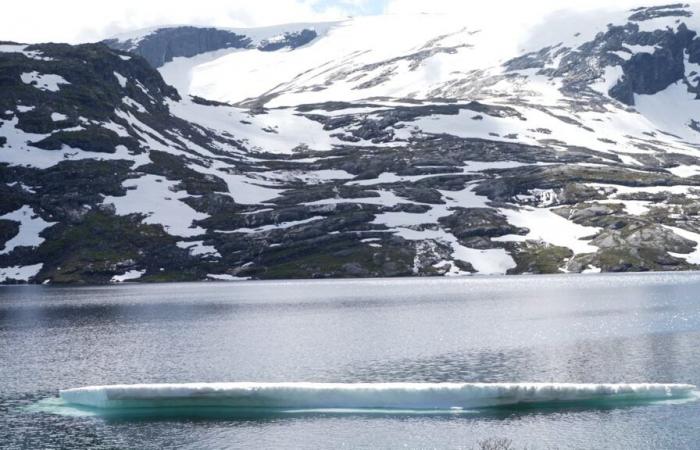While a heat wave has hit part of the globe this summer, northern countries have not been spared. Norway and Lapland have recorded record temperatures this August, sometimes reaching 20°C.
Northern Norway, located above the Arctic Circle, recorded record temperatures in August, well above the highest recorded last year, the Norwegian Meteorological Institute said. At several measuring stations in the north of the country, temperatures recorded last month were 2 to 3 degrees Celsius higher than the record set in August 2023.
The same thing happened a few kilometres away in Lapland, a region in the far north of Finland, which also saw record temperatures in June, July and August, the Finnish Meteorological Institute said.
“It is very unusual, almost unreal, to observe changes of such magnitude in so many places in northern Norway and Svalbard,” an archipelago located halfway between mainland Norway and the North Pole, Jostein Mamen, a researcher at the institute, told AFP.
Unprecedented heat
At Hammerfest airport in the Finnmark region, for example, a peak of 16.9°C was recorded in August, 3.1°C higher than the record for the same period last year, but temperatures have only been measured there since 2008.
The Svalbard archipelago, also known as Spitsbergen, experienced its hottest summer for the third consecutive year, according to the institute.
“It’s also very, very special. As far as we know, this has never happened before,” commented Jostein Mamen.
At 11.0°C, the average temperature recorded at Longyearbyen airport, the main town on Svalbard, was 5.0°C above the seasonal norm, with a totally unusual peak of over 20°C, according to the meteorological institute.
Are glaciers in danger?
On Bjørnøya, an island in the southern part of the archipelago, the average temperature also slightly exceeded 11.0°C. This is all the more unusual since the Arctic climate is defined, among other things, by temperatures generally below 10.0°C in summer. Jostein Mamen attributes these records to “a combination of factors related to climate change and natural variations”.
“No cold snap”
In Lapland, “the summer was the hottest on record,” said Mika Rantanen, a climate change researcher at the Meteorological Institute of Finland. The average temperature between June and August was 16.2°C in Finland, the highest level since 1937, and the country suffered drought and fires.
In Sodankyla, a large town north of the Arctic Circle, the average temperature reached 15.9°C, 1.8°C above what it would have been without the effects of global warming, the institute estimated.
“The minimum temperatures were very high in Lapland… there was no cold spell,” added Mika Rantanen.
According to a study published in 2022 by Finnish researchers in the journal Nature, the Arctic warmed almost four times faster than the planet between 1979 and 2021.
The region is affected by a phenomenon called “Arctic amplification.” This occurs when sea ice, which naturally reflects the sun’s heat, melts, giving way to dark seawater that absorbs more solar radiation and thus helps warm the air.







